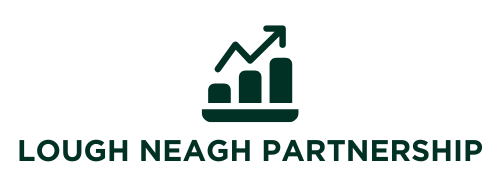Table of Contents
ToggleIn a world where avocado toast can cost more than a small car, managing disposable income has never been more critical. Everyone wants to enjoy life’s little luxuries without feeling like they’re living paycheck to paycheck. Luckily, with a few clever tips, it’s possible to stretch that hard-earned cash further than a pair of yoga pants at a weekend retreat.
Imagine sipping that fancy coffee while knowing you’ve got savings in the bank. Whether it’s cutting back on impulse buys or mastering the art of budgeting, these tips will help anyone transform their financial landscape. So buckle up and get ready to take control of your disposable income—because who doesn’t want to enjoy life without breaking the bank?
Understanding Disposable Income
Disposable income represents the amount of money available for spending after deducting taxes and essential expenses. This figure plays a crucial role in budget planning and lifestyle choices.
What Is Disposable Income?
Disposable income is the portion of income remaining after paying for mandatory expenses such as taxes, housing, and basic necessities. It includes earnings from wages, bonuses, and investments. Households can utilize this income for discretionary spending, such as entertainment, savings, or leisure activities. Tracking disposable income helps individuals gauge their financial freedom and make informed spending decisions.
Importance of Managing Disposable Income
Managing disposable income aids in achieving financial stability and personal goals. When individuals keep a close eye on their spending, they can prioritize essential expenditures over luxury items. Effective management facilitates saving for future investments or emergencies. Additionally, it allows households to enjoy life without the burden of debt. People who understand their disposable income can enjoy a balanced lifestyle while minimizing financial stress.
Tips for Increasing Disposable Income

Improving disposable income enhances financial freedom and promotes a satisfying lifestyle. Implementing effective strategies can make a substantial difference in managing finances.
Budgeting Strategies
Effective budgeting serves as a foundation for managing disposable income. Track all income and expenses to understand spending habits. Creating a monthly budget ensures priorities align with financial goals. Consider using budgeting apps or tools that simplify tracking. Regularly reviewing and adjusting the budget helps in staying on course.
Cutting Unnecessary Expenses
Reducing unnecessary expenses directly increases disposable income. Identify subscriptions that remain unused or seldom accessed. Cooking at home instead of dining out provides significant savings. Shopping with a list prevents impulse buying and encourages mindful purchases. Learning to differentiate between wants and needs helps in cutting costs effectively.
Finding Additional Income Sources
Exploring additional income sources boosts overall financial resources. Freelancing, part-time jobs, or gig opportunities offer flexible options. Selling unused items generates extra cash while decluttering the home. Investing in skills or education may lead to better paying job opportunities. Networking within professional circles can uncover potential side projects or collaborations.
Smart Spending with Disposable Income
Managing disposable income effectively leads to smarter spending habits, allowing individuals to enjoy life while maintaining financial health. Implementing certain strategies can enhance this experience.
Prioritizing Needs vs. Wants
Understanding the distinction between needs and wants proves crucial in managing disposable income. Needs encompass essential expenses such as housing, food, and healthcare. Wants, including entertainment and luxury items, can complicate budgeting. He or she should evaluate expenditures regularly, categorizing them clearly. Prioritizing needs ensures that essential bills receive attention first, resulting in a sustainable financial foundation. Spending habits improve when individuals focus on fulfilling these basic requirements before indulging in discretionary purchases. Creating a list of monthly expenses can facilitate this process, reinforcing the importance of needs over wants.
Utilizing Discounts and Coupons
Finding discounts and coupons can significantly stretch disposable income. Numerous websites and apps offer users access to valuable savings on everyday purchases. Comparison shopping through various platforms allows individuals to identify the best deals available. He or she can also take advantage of loyalty programs that reward frequent shoppers with discounts. Using coupons strategically maximizes available funds by lowering the cost of necessary items, which contributes to a balanced budget. Consistently seeking opportunities for savings fosters more mindful spending habits and makes it easier to enjoy life’s small pleasures while maintaining financial stability.
Saving and Investing Disposable Income
Managing disposable income effectively includes saving and investing. Creating a secure financial future requires a purposeful approach.
Building an Emergency Fund
Establishing an emergency fund serves as a financial safety net. Aim for three to six months’ worth of essential expenses to cover unexpected situations, like medical emergencies or job loss. Set aside a portion of disposable income each month until reaching that goal. Consider using a high-yield savings account to earn better interest on the fund. Regular contributions, even small ones, accumulate over time. Having this fund offers peace of mind, reducing stress and fostering confidence in handling unexpected financial challenges.
Exploring Investment Options
Exploring various investment options helps grow disposable income. Individuals often consider stocks, bonds, mutual funds, or real estate. Stocks provide potential high returns but come with increased risk. Bonds typically offer stability with lower returns, appealing to conservative investors. Mutual funds bundle various stocks and bonds, diversifying investments without requiring extensive market knowledge. Real estate can generate passive income while appreciating in value. Assess personal financial goals and risk tolerance before choosing investments. Starting early enhances growth potential, allowing individuals to harness the power of compound interest.
Managing disposable income is crucial for achieving financial stability and enjoying life’s pleasures. By adopting smart budgeting techniques and prioritizing essential expenses, individuals can stretch their income further.
Emphasizing mindful spending and exploring additional income sources can lead to greater financial freedom. Building an emergency fund and investing wisely not only secures a brighter future but also alleviates financial stress.
With these strategies in place, it’s possible to enjoy a fulfilling lifestyle without the burden of overspending. Taking control of disposable income empowers individuals to make informed financial decisions and live life to the fullest.








